Published
- 04:00 am
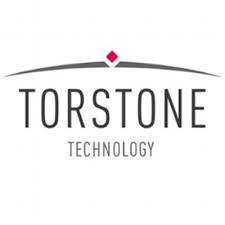
Torstone Technology, a leading global provider of post-trade securities and derivatives processing, today announced that it has entered the Norwegian market by connecting its flagship Inferno platform to Verdipapirsentralen ASA (VPS), Norway’s Central Securities Depository.
Inferno is a modern, flexible, scalable and cost-effective post-trade platform which will enable seamless connectivity to VPS for firms trading VPS-registered securities, such as shares listed on the Oslo Stock Exchange (Oslo Børs) as well as bonds and commercial paper issued in Norway. Its real-time, event-driven, service-orientated architecture enables firms to achieve very high rates of straight through processing (STP).
At the request of a market participant, VPS had a joint venture with Torstone testing the connectivity to meet the requirements for the Norwegian market. The system connectivity was built and tested in a short period of time, and the overall process went very smoothly, producing successful results.
VPS commented, “We were pleased with the results of the initial testing phase of the implementation and are looking forward to continuing working with Torstone as the project evolves.”
Jonny Speers, Global Head of Sales, Torstone, added: “We are delighted with the positive feedback we received from VPS following the initial connectivity testing phase. The cooperation was our first project in Norway and serves as another great example of Torstone's ability to quickly enter a new market to provide a fully featured, value-add solution, therefore emphasising the flexible nature of Inferno. We are excited about the opportunities in the Norwegian market as we look to strengthen our presence there.”
Related News
- 05:00 am
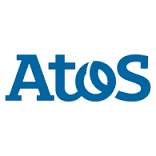
Atos, a global leader in digital transformation, today announces three new initiatives to strengthen its global FinTech Partner program; FinLab, its cloud-based platform to facilitate the creation of new joint services; FinHub, a Fintech on-boarding program and FinNet, an insights and trends knowledge portal. Uniting FinTechs, InsurTechs and RegTechs with top Financial Services businesses, Atos FinTech Partner program aims to co-create and bring-to-market new services.
FinLab: A Growth Engine for Joint Value Creation for banks and insurers
Atos’ FinLab is a hybrid Cloud-based platform, combined with Atos’ business, technical and API integration expertise, which enables banks, insurers and their selected FinTech partners to develop new services. A differentiating feature of Atos’ FinLab is the ability to create customer-specific end-to-end journeys (Loans Origination, My Finance Pal 2.0, and Digital Assistant), which combine bundled services and APIs of various Fintech solutions.
FinHub: Fast-track On-boarding in only 2-4 weeks for FinTechs
With Atos’ FinHub, Fintechs get access to an extensive network of major Financial Services companies with full legal and go-to-market support from Atos, to develop a collaborative offering that will drive joint business growth, in a fast-track onboarding program of only 2 to 4 weeks. Financial Services businesses benefit from fast access to a large community of prepared, pre-vetted and quality-assured Fintechs, combined with Worldline’s assets and supported by Atos’ end-to-end integration management.
FinNet: portal on global FinTech landscape
This knowledge portal offers insight into the rapidly-changing FinTech landscape from around the world, nourished by research from dedicated market and customer intelligence teams as well as the expertise of the 135 global experts in the Atos Scientific Community.
Commenting on the launch of these new services, Dan Cohen, Group Senior Vice President at Atos for Global Financial Services, says: “In today’s competitive landscape, Financial Institutions need to offer new ways to create value in order to survive and thrive. Fintechs also face compliance, credit and distribution challenges. Our investment in Fintech Services shows our commitment to support Financial Institutions by facilitating these partnerships, fostering co-innovation and bringing to market new services that differentiate their business and enable growth.”
Referring to the NelsonHall 2017 FinTech Services in Banking report in which Atos is positioned a Leader, Andy Efstathiou, Banking Sourcing Research Director at NelsonHall says “Atos’ key strengths are its strong presence and IP in digital banking and payments with Worldline, an Atos company and the European leader in the payments and transactional services industry, as well as its close relationships with many leading FinTech software vendors to create joint industry solutions.”
Through its subsidiary Worldline, European leader in the payments and transactional services industry, Atos brings expertise in e-payment, transactional services and digital banking to Financial Services businesses. Today Atos and Worldline are working closely with around 20 pre-vetted Fintech partners to develop a range of vertical value propositions for some of the world’s biggest banks and insurers. These include:
- Enriched and seamless Customer Experience, ensuring PSD2 compliancy, while connecting FinTech solutions to Worldline’s open digital banking (API) platform and Atos’ FinLab;
- Agile and efficient retail loans business models;
- Solutions to build individual customer DNA (involving analytic processing, Big Data, IoT, Cognitive Computing and Natural Language Processing) to enable banks and insurers to create personalized customer experiences and generate new revenue streams;
- E-payment solutions (focusing on mobile payments and wallets, Blockchain, instant payments and payment fraud).
Atos’ Fintech partners include, amongst others Backbase, Moven, NGdata, Customer Matrix, Friss, e-BankIT and AcceptEasy, which bring expertise in customer experience, customer DNA and analytics, insurance fraud and claims management, customer ID verification and e-billing to Atos’ FinTech community.
Reinforcing its position as a leader in the sector, Atos was listed in the IDC Financial Insights FinTech Rankings Top 25 Enterprise, as a Leader in the NelsonHall 2017 FinTech Services in Banking and in the NelsonHall 2017 Next-generation Mortgage & Loan BPS reports and as a Major Contender in Digital Services for Consumer Banking by Everest Group. Worldline, an Atos Group subsidiary and the European leader in the payments and transactional services industry, was ranked in the IDC Financial Insights FinTech Rankings Top 100.
Related News
- 09:00 am
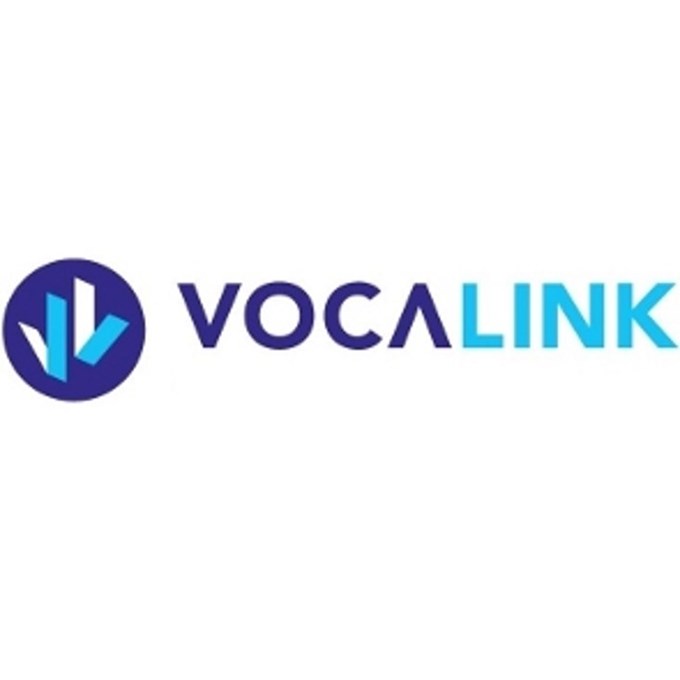
Vocalink, a Mastercard company and global payment partner to banks, corporates and governments, today announced that Stig Korsgaard has joined the organisation as Vice President, European Sales. Based in Denmark, Stig’s appointment will further drive the growth of Vocalink's range of products with a focus on the development of real-time payments infrastructure and applications throughout Europe.
Stig brings a wealth of financial services experience to Vocalink having worked for twenty five years in Clearing Services, real-time payments, market infrastructures, payment business development and electronic data exchange. Stig joins from Nets in Denmark where, as part of the senior management team, he was Chief Sales Officer and Head of the Business Expansion and International Sales Department in Clearing Services at Nets A/S responsible for business development and international sales related to instant and other clearing platform solutions to global customers including partner strategy and communications.
In his new role Stig is appointed to the International Sales team reporting into Kris Kubiena, International Sales Director, with immediate effect. Stig’s focus will be on maximising opportunities in Europe, as well as providing his invaluable knowledge and experience to support the business’ global efforts.
Paul Stoddart, CEO, Vocalink, a Mastercard company commented:
“Stig joins us at an exciting time for the business as we continue to build our real-time payments business globally. Following recent successes and award-winning international projects, he will work closely with the Mastercard global and regional teams to further evolve the real-time payments eco-system in Europe. Stig is a very welcome addition to our International Sales team as he brings invaluable expertise in payments and clearing system development, combined with strong leadership, sales and project management skills.”
Related News
- 04:00 am
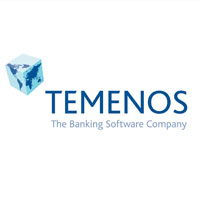
Eight in 10 bankers see Open Banking as more of an opportunity than a threat and 62 percent would be prepared to distribute third-party products through their platforms and channels, according to Temenos’ 10th annual banking survey. The findings underscore banks’ willingness to change their business models to improve profitability, which emerged as the top concern in the survey. The report, ‘Searching for profitability in a fast-changing world’ is co-authored by Temenos and Accenture, and includes a survey of 248 senior banking executives from across the globe.
According to the findings, banks increasingly view other banks – rather than non-bank entrants – as their main competitive threat. New challenger banks are now perceived as the leading competition, cited by 22 percent of respondents, which may explain why many banks are now launching digital brands themselves. At the same time, there is a growing acceptance that fintechs could help banks alleviate competitive pressures, with the majority of respondents expressing interest in collaborating with fintechs. However, banks face challenges working with fintechs, with more than half (55 percent) of respondents flagging their internal procurement process as a major hurdle to successful collaboration.
Recognizing that profitability is a structural, rather than a cyclical issue, the report found that banks are increasing their IT budgets to digitize operations. Two-thirds of respondents expected their budgets to be higher in 2018, and 23 percent named core banking platform replacement as their top IT spending priority.
“As European banks ready their networks for compliance with Open Banking regulations like PSD2, banks across the globe are identifying opportunities to use Open Banking to drive new revenue streams by offering services to third parties, such as consumer credit checks and identity management,” Said Alan McIntyre, a senior managing director at Accenture and head of its Banking practice. “Banks have an opportunity to use their trusted position with consumers to own the customer relationship and provide the seamless digital experience customers want.”
David Arnott, Chief Executive Officer, Temenos, said: “Banks increasingly recognize what it takes to succeed in the digital age. To compete effectively against challenger brands and internet platforms, they need to embrace end-to-end system replacement. This will allow them to digitize operations, offer data-driven and personalized customer experiences and open up their platforms to third-parties. As the survey shows, banks are upping their investments in the right areas, notably core replacement, which leaves them well-placed for the future. However, for those banks deferring digitization efforts or limiting them to digital channels, the future will be less forgiving.”
Other key findings include:
- Challenges: Respondents cited profitability as the biggest challenge to their business.
Other concerns included meeting regulatory requirements, securing customer loyalty using data effectively, addressing increased competition and managing the growing risk of cybercrime (cited by 17 percent, 17 percent, 15 percent, 15 percent and 10 percent, respectively).
- Digital engagement: In 10 years, bankers estimate that two-thirds of customer interactions will be through chatbots. They believe that only 7 percent of interactions will be in-person.
- Cloud technology: Cloud is gaining traction within banks. Only 22 percent of respondents are now worried about data security in implementing cloud solutions, compared to 50 percent in 2011, and only 29 percent cited regulation as a barrier to adoption vs 39 percent in 2012.
Methodology
Temenos interviewed 248 bankers over three days at the Temenos Community Forum (TCF 2017), held in Lisbon. Sixty percent of respondents are C-level executives.
Related News
- 05:00 am
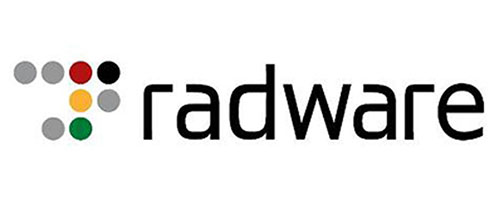
Radware, a leading provider of cyber security and application delivery solutions, has released its 2017-2018 Global Application and Network Security Report, which found that the percentage of companies reporting financially motivated cyber-attacks has doubled over the past two years, with 50% of surveyed companies experiencing a cyber-attack motivated by ransom in the past year. As the value of bitcoin and other cryptocurrencies – often the preferred form of payment among hackers – has appreciated, ransom attacks provide an opportunity for hackers to cash out for lucrative gains months later.
“The rapid adoption of cryptocurrencies and their subsequent rise in price has presented hackers with a clear upside that goes beyond cryptocurrencies’ anonymity,” Andrew Foxcroft, regional director for Radware UK, Ireland and Nordics. “Paying a hacker in these situations not only incentivices further attacks, but it provides criminals with the vital funds they need to continue their operations.”
The number of companies that reported ransom attacks in which hackers use malware to encrypt data, systems, and networks until a ransom is paid – surged in the past year, increasing 40% from the 2016 survey. Companies don’t expect this threat to go away in 2018 either. One in four executives (26%) see ransom as the largest threat to their business sector in the coming year.
“Criminals used various exploits and hacks this year to encrypt vital systems, steal intellectual property, and shut down business operations, all with ransom demands attached to these actions,” Foxcroft said. “Between service disruptions, outages, or intellectual property theft, hackers are leaving businesses reeling, searching for solutions after a hack occurs. As hackers and their methods become increasingly automated, it is now more important than ever for organisations to be proactive in protecting their business.”
Other key findings of the report include:
- Businesses are most concerned with their data when hit with a cyber-attack. Respondents noted that data leakage was their top business concern, followed by reputation loss and service outages. Yet with five months to go until GDPR comes into force, only 28% say their organisation is very or well prepared for GDPR, and another third feel somewhat prepared. Not surprising, those in Europe are more likely to say they are very well or well prepared compared to those in North America (35% vs. 25%), while one in four in North America are completely unfamiliar with GDPR.
- Despite one in four (24%) businesses reporting cyber-attacks daily or weekly, nearly 80% of surveyed organisations have not come up with a calculation for the cost of attacks, and one in three lack a cyber security emergency response plan.
- Respondents are not quite sure who is responsible for internet-of-things (IoT) security. When asked who needs to take responsibility for IoT security, there was no clear consensus among security executives. Responses pinned responsibility on the organisation managing the network through to the manufacturer (34%), but the majority said consumers using these devices (56%).
Radware’s Global Application and Network Security Report, now in its seventh year, is a cross-industry report compiled by Radware’s Emergency Response Team (ERT), leveraging vendor-neutral survey data from 605 IT executives spanning several industries around the globe, Radware’s hands-on experience handling today’s leading threats, as well as third-party service provider commentary. The complete Global Application & Network Security Report 2017-2018, which details 2017’s major attack trends and provides predictions and recommendations from Radware’s ERT for how organisations can best prepare for mitigating cyber threats in 2018, can be downloaded at https://www.radware.com/ert-report-2017/
Related News
- 09:00 am
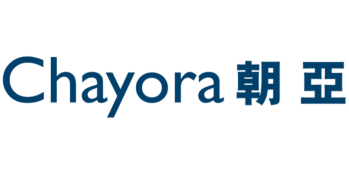
Chayora Limited, a Hong Kong-based data centre infrastructure company, announces today it has finalised agreements with the government of Beichen, Tianjin, to begin construction of the company's first hyperscale data centre campus in China. The 300MW, 32-hectare / 80-acre campus will serve the greater Beijing region that is home to more than 150 million people in the JingJinJi mega-metropolitan area of northern China.
Commencing the first phase of development of Chayora's initial data centre building, construction is already underway with a completion and live operations target date of the end of 2018. This first building on Chayora's Tianjin Data Centre campus is designed for up to full 2N resilience and redundancy with dedicated substations for a 25MW IT load. Both gas turbine power generation and advanced grid power will support the site.
Chayora is leveraging industry-leading, prefabricated modular data centre design and construction that will enable world-class standards to be delivered quickly and to precisely assured tolerances while providing companies with flexible capacity growth options as more international businesses begin to expand in China.
The Chayora Tianjin campus, when completely built-out, will comprise six large 3000 rack data centres and three smaller 1000 rack high performance computing facilities. Each will be tailored to meet international enterprise or colocation operators' design and operational standards within an agreed masterplan and flexible building configurations. Assured scalability from 2MW to 100MW+ and full turnkey financed solutions are a core feature of Chayora customer agreements.
"The continued development of China and its importance to the global economy was underlined by China's leadership at the 19th National People's Congress in Beijing in October," says Oliver Jones, co-founder and Chief Executive Officer, Chayora. "The creation of world-class technology infrastructure will play a key part in underpinning these goals and Chayora is committed to supporting this achievement. Recent predictions from Forward Intelligence Group indicate that China will represent approximately 25 percent of world cloud revenues by 2020. This aligns with our own expectations and reinforces our strategy of creating some of the world's largest and most advanced data centre sites to accommodate these developments."
Forthcoming in the second quarter of 2018, Chayora will begin construction of its second hyperscale campus, a 280MW data centre to serve the greater Shanghai region. Unlike most other options for Shanghai, Chayora's facilities will be newly-built and designed from the ground up to international standards with all necessary permits to enable global corporates to access Shanghai and the surrounding provinces of eastern China, a population of more than 200 million. Shanghai is a key location for global organisations, including financial services, e-commerce and cloud service providers, and is in need of significant high performance data centre capacity.
Chayora's core offering is to develop and operate large-scale, built-to-suit, high-performance data centres for individual clients on long-term contracts across multiple strategically-located campuses, complete with ready-to-operate, robust and scalable infrastructure capable of supporting world-class data centre operational standards. Chayora is also raising further investment resources to augment its existing capital, and to pursue its plan to design and build additional data centre campuses in key connectivity hubs across China.
Related News
- 01:00 am
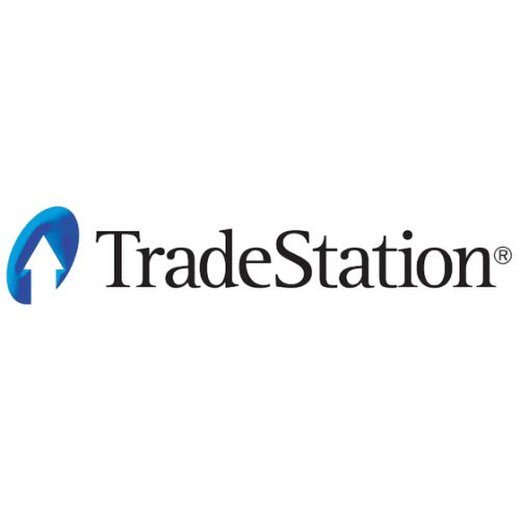
TradeStation International Ltd, the London-based, United Kingdom subsidiary of TradeStation Group, Inc., announced today it has teamed with Interactive Brokers (U.K.) Limited, an affiliate of the Interactive Brokers Group, Inc. (IBKR), to offer a TradeStation Global platform and brokerage account with the ability to trade markets across the globe.
This new "TradeStation Global" product combines the award-winning* TradeStation trading analysis platform - including a wide range of TradeStation premium features such as the RadarScreen® market monitoring and ranking tool, a market depth tool and the fully customizable TradeStation Charting package - with Interactive Brokers' multicurrency global account, execution, clearing and settlement capabilities and very low margin rates.
Qualified clients** will be able to access available market data from Interactive Brokers around the clock and to trade stocks, ETFs, futures (including, where available, Bitcoin futures), forex (major and minor currency pairs), CFDs and bonds, in over 100 markets across the UK, Europe, Scandinavia, United States and the Asia-Pacific region.
TradeStation Global clients will be able to fund their accounts in multiple currencies, as well as trade assets denominated in multiple currencies from a single account. Forex traders will be able to access combined liquidity from some of the world's largest foreign exchange dealers and trade currencies at highly competitive rates.
"We are excited about the opportunities our clients will now have to trade global markets using the cutting-edge power of the TradeStation platform as connected to Interactive Brokers' global execution capabilities," said Rustam Lam, CEO of TradeStation International Ltd. "We believe this will be a great combination for eligible active traders and institutions looking to make the most of their trading ideas and opportunities on a global scale."
To learn more about TradeStation Global or to open an account, call 00800 70 70 80 83, email TradeStationGlobal@Tradestation.com or visit www.tradestation-international.com/Global.
All of the brokerage accounts described in this announcement are introduced by TradeStation International Ltd (TIL) to Interactive Brokers (U.K.) Limited (IB UK) on a fully-disclosed basis. TIL will provide account holders with a subscription to the TradeStation platform for charting, research, analysis and the initiation of trade messages to IB UK's (or its affiliates') order placement systems, as well as technical support for the TradeStation platform and certain administrative services, but will be providing no brokerage account services. All proprietary information and intellectual property embodied in or relating to the TradeStation platform, as well as the TradeStation mark and other proprietary marks and names used, are owned by TradeStation Technologies, Inc., an affiliate of TIL.
* Awards related to the TradeStation platform include: (1) Stockbrokers.com, Best Platform Technology (2013- 2017), and "Best in Class" - Platform & Tools (2012-2017); and (2) Technical Analysis of Stocks & Commodities magazine, Best Trading Systems - Stocks and Best Trading Systems - Futures (2006-2017), and Best Professional Platform (2004-2017).
** "TradeStation Global" accounts are not available to residents of the United States or Japan.
About TradeStation Group, Inc.
TradeStation Group, Inc., through its operating subsidiaries, offers the TradeStation analysis and trading platform to the active trader and certain institutional trader markets. The TradeStation platform offers electronic order execution and enables clients to design, test, optimize, monitor and automate their own custom equities, options and futures trading strategies. TradeStation Group is a wholly owned subsidiary of Monex Group, Inc., one of the largest online financial services providers in Japan.
TradeStation International Ltd is a company authorised and regulated by the Financial Conduct Authority ("FCA") in the United Kingdom with passport rights in EEA to act as an introducing broker.
Related News
- 04:00 am
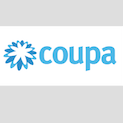
Coupa Software, a leader in business spend management (BSM), announced today that the largest retailer in Denmark has chosen Coupa’s Source-to-Pay (S2P) solution to streamline strategic sourcing, procurement and accounts payable across its diverse international supermarket business. Dansk Supermarked Group (DSG) will implement Coupa across its corporate head office and its international retail chains.
Coupa’s industry-leading, cloud-based S2P solution will enhance strategic sourcing efforts at DSG and automate accounts payable invoice processing for millions of retail supplier invoices. Through this initiative, DSG aims to simplify the process of sourcing, buying and paying for goods and services in a cost-efficient and compliant manner.
“DSG’s mission is to give our customers the best possible shopping experience, both online and in-store,” said Alan Jensen, Chief Information Officer at DSG. “Our S2P program with Coupa is an exciting extension of that vision to our internal customers, extending the benefits of simplified procurement to our international workforce. Coupa proved itself to be the right choice of partner for DSG by combining a modern, cloud-born platform with an approach strongly focused on DSG’s success."
Each week more than 9 million shopping trips are carried out at stores owned by the Dansk Supermarked Group, and every day the company provide 1.4 million customers with groceries and everyday essentials, along with a wide range of non-food products online.
Dansk Supermarked Group provides the framework for more than 50,000 international employees in four countries. The company is focused on enhancing the shopping experience for all customers.
“We are committed to helping retailers deliver the best shopping experience for their customers while at the same time maximising the value of every dollar they spend,” said Rob Bernshteyn, CEO, Coupa. ”With our unified cloud platform for business spend management, we will help Dansk Supermarked Group spend its money smarter by driving increased adoption across their employees and suppliers as well as by capturing spend-related transactions in one place that’s available anytime and from any device.”
Related News
- 09:00 am
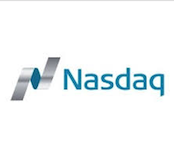
Nasdaq Inc. and Bolsa de Valores de Panamá (BVP) have signed an agreement for Nasdaq to deliver matching engine technology via the Nasdaq Financial Framework architecture to Panama's national stock exchange. BVP will replace its current technology with a new platform that will allow them to meet their strategic growth plans and leverage the modular functionality of the Nasdaq Financial Framework to offer additional services to their members and clients.
"Replacing our existing trading software to Nasdaq's technology is a key component in achieving our strategic goals, our continuing efforts of the regional integration of the exchanges and position our Exchange as the hub for capital markets in the region," said Olga Cantillo, Chief Executive Officer, Bolsa de Valores de Panamá.
"Panama is one of Latin America's important growth markets and is clearly committed to creating a liquid, highly sought after ecosystem," said Carlos Patino, Head of Latin America, Market Technology, Nasdaq. "By leveraging Nasdaq's next generation technology to run their exchange, BVP will have numerous opportunities to scale their business, expand their offerings and solidify their position as an integral driver of future growth in the region."
Nasdaq's market infrastructure technologies, including trading, real-time risk, index, clearing, CSD and market surveillance systems are operated in more than 100 marketplaces, regulators, clearinghouses and central securities depositories across the Americas, Europe, Asia, Australia, Africa, the Middle East and the Caribbean.
Related News
- 05:00 am
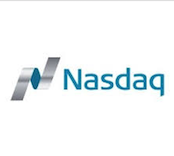
Nasdaq Corporate Solutions, a business of Nasdaq, Inc., today announced the launch of passiveIQ(TM), a new analytics tool designed to provide investor relations (IR) professionals with comprehensive and actionable insights into passive index investment data from mutual funds and ETFs. passiveIQ is available as a supplementary service to Nasdaq IR Insight®.
Index ownership has created a shift in today's capital markets: the value of passive fund assets increased year over year by 30 percent to $6.6 trillion as of the end of December 2017*. passiveIQ is the first IR-specific solution built to benchmark passive ownership in a company's shares relative to its peers and is designed to appeal to all public companies, regardless of market capitalization or geographic location. passiveIQ's other features are designed to help IR professionals understand the latest trends in index ownership and gain insight into the index funds and ETFs they are, and are not, receiving capital from.
"The IR marketplace today provides a number of ways to discover details on the active investment community, but companies are virtually left in the dark about a growing part of their shareholder reality," said Stacie Swanstrom, Executive Vice President and Head of Nasdaq Corporate Solutions. "With one-third of all mutual fund and ETF assets under management now in passive index funds, the need for an analytics-based solution with actionable insights on passive index trends has never been greater. The comprehensive insights available through Nasdaq's passiveIQ will help the IR community adapt to an evolving capital markets landscape."
passiveIQ also offers a comprehensive source of data, backed by the experienced analysts from Nasdaq Advisory Services' index team, to help companies identify indices for potential inclusion.
Example trends and insights from passiveIQ include:
- For each company in the NASDAQ-100 Index®, the average number of passive indices is 108 indices;
- The average passive index dollar ownership for a company listed in the Russell 3000 Index is $1.53 billion; and
- For each company in the MSCI ACWI ex USA Index, the average number of passive indices is 65 indices.
Nasdaq Corporate Solutions plans to further develop passiveIQ with additional features, including rationales for index inclusion or exclusion, alerting functionality around index rebalances and reconstitutions, and near real-time passive index ownership changes.









